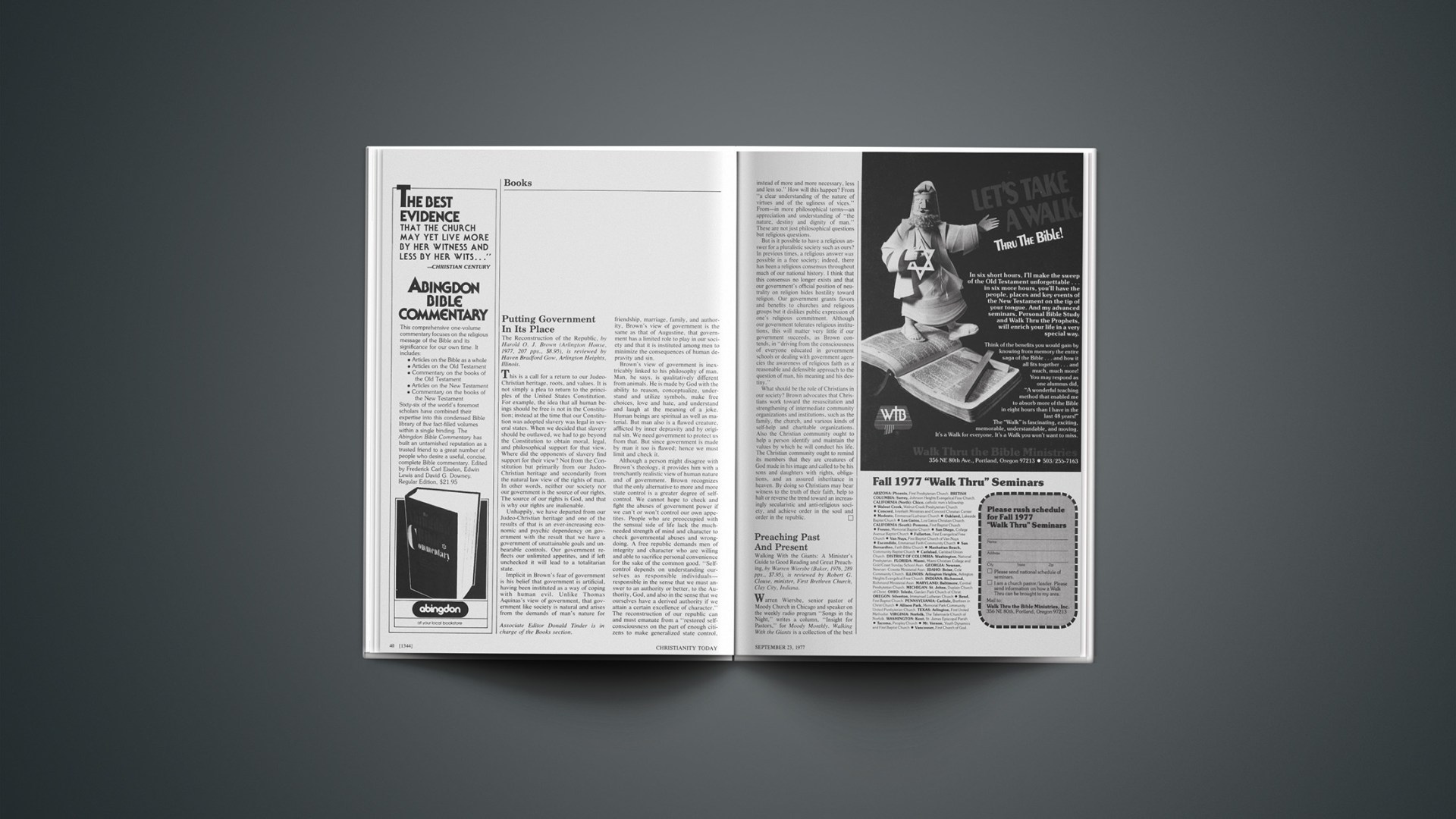I was halfway up a stone stairway when I flipped open Newsweek and began to read. I changed my position several times—standing on one foot to kneeling to sitting on the edge of a step. Why? because my attention had been riveted to the story of the “bulls eye” hit of lightening that struck the power stations that plunged New York City into total darkness. No moving elevators, no pumps for water supply, no trains, no power for the hospitals, no way to get from one point to another inside or outside a building. A passage from Isaiah fits what happened in New York: “For, behold the darkness shall cover the earth, and gross darkness the people” (Isa. 60:21).
As I read of people looting store after store, I shook my head in disbelief. Markets were set up within hours to sell the stolen goods at bargain prices, like some fancy country fair, a bazaar situation. To see pictures of racks of dresses and huge oil paintings being lugged by people who looked as if this were their regular occupation was like watching a comic opera. But when buildings were burned, endangering lives and leaving people homeless, reporters could only call it “deep resentment and anger against society coming out.” What else?
Time magazine headed its reports “Looking for a Reason” and “Why the Lights Went Out.” Phrases from this run from “highly improbable natural events” to “acts of God.” At 8:37 PM a power station was struck at Indian Point, quite a distance up the Hudson River. At 8:56 in Westchester, and at 8:59 the third in North Pleasant Valley. At 9:27 the fourth further crippled all the electrical supply and by 9:41 everything was at a standstill. Such a black-out supposedly couldn’t happen. For people who do not believe there is a God to act, “an act of God” is a poetic phrase. And for people who believe this is an impersonal universe what reason could there be for the occurrence?
For people who believe in the God of the Bible there are several possibilities. Judgment sent on a city that had so largely turned away from him. But New York is no more in need of judgment than many other cities. Or warning of possible judgment or of the reminder of the existence of God, who is able to act in history.
It seems to me there is a third possibility. People prattle about how good man is, and make plans to divide the opportunities or the wealth, or to solve the problems of the world by making everyone equal. Such an incident snaps us back to reality. God has provided a moment of stark reality. The veneer was torn off that July night in New York. That’s how people act who have no morality and no reason to act ethically. As soon as the light was removed, and darkness covered the city people stole other people’s goods the way a tidal wave sweeps destructively onto shore. The lack of electricity lit up the reality of people’s minds and hearts. That’s what people are like when separated from light and the light. In John 3 Jesus explains something about people: “And this is the condemnation, that light is come into the world, and men loved darkness rather than light, because their deeds were evil. For everyone that doeth evil hateth the light, neither cometh to the light, lest his deeds should be reproved” (19, 20). Later in John 8:12 Jesus says, “I am the light of the world: he that followeth me shall not walk in darkness, but shall have the light of life.”
What a contrast between fallen men and women who desire darkness and the regenerated people who do not need to walk in darkness any longer. In Matthew 6 Jesus tells us not to lay up treasures on earth. He adds that where a person’s treasure is his heart will be. Following that he says, “The eye is the lamp of the body. If your eyes are good, your whole body will be full of light. But if your eyes are bad, your whole body will be full of darkness. If then the light within you is darkness, how great is that darkness” (Matt. 6:22, 23). How vividly is that truth depicted than when people have darkness both around and in them. New York offered an example of what the Word of God says about people who are in darkness. The violence and torture man inflicts on man is another example. We look ahead to the time Isaiah described in 60:20, 21: “For the Lord shall be thine everlasting light, and the days of thy morning shall be ended. Thy people also shall be all righteous; they shall inherit the land forever, the branch of my planting, the work of my hands, that I may be glorified.” If only some people could really see in the dark that which would bring them to the light. The “turning on of lights” would be a dazzling sight, then.










